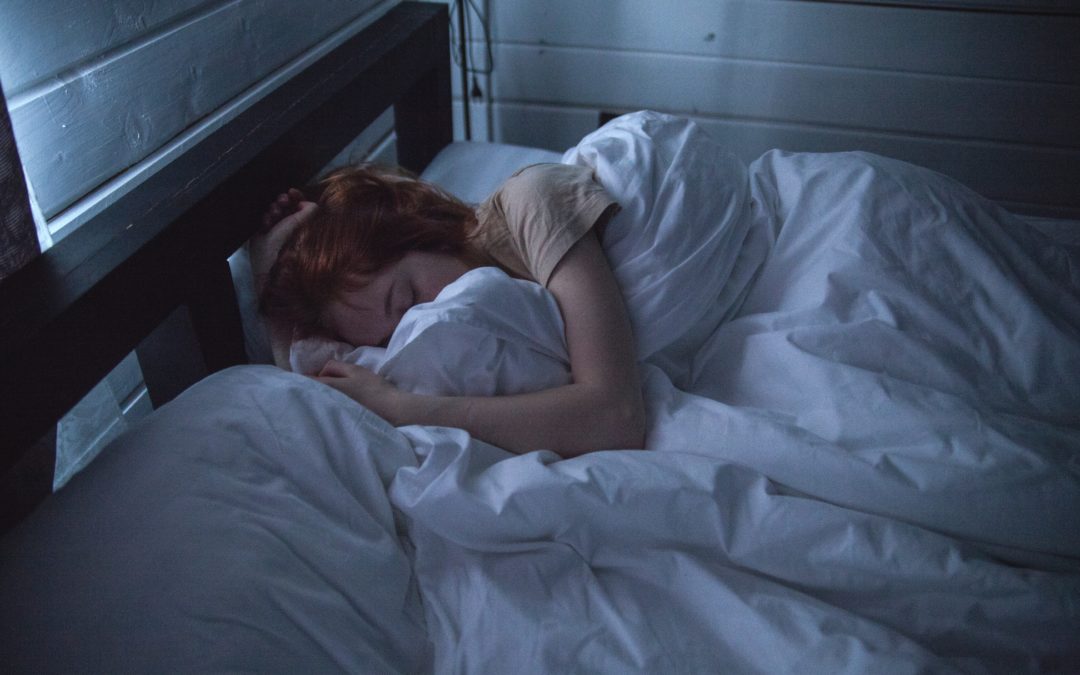
If you are having long term problems with your sleep, Cognitive Behavioural Therapy (CBT) can help with insomnia. We have some ‘heavy duty’ strategies that work well, but first it can be helpful to try some of our suggestions below first.
Remember: One strategy alone might not make a revolutionary difference, but add them all up and you are giving your sleep pattern the best chance to re-adjust itself to a more regular rhythm that can make a difference in a few weeks. Give it time and try everything together for at least a couple of weeks before you assess how it is working for you.
A lot of the interventions below are about helping your body understand when it is day and time for activity, and when it is night and time for sleep. We also want to create a very clear sleep dive, clear cues for sleep, and remove any disturbing factors:
1. Increase exercise and activity. Some people with sleep problems try to conserve their energy as they feel it it is limited when they are tired. They might not go to training or meet friends because of poor sleep. If this becomes a pattern, it becomes more difficult for the body to determine when it’s time for activity and when it is time for sleep. It is like “watering down” the sleep drive that we are supposed to have at bedtime.
If you stop exercising and engaging in normal social activities, you may also start feeling low long term. This often leads to feeling more tired. It also sometime results in more worry about the sleep issues, as it feels like it is greatly impacting your life. We all know how hard it is sleep when we are feeling worried. Worrying about sleep can become a disturbing factor, so it is much better to break that negative cycle of worry and insomnia.
A common mistake is exercising right before bed. Doing jumping jacks to exhaust yourself right before bed would tell your body it’s time for activity, so try not to schedule exercise within 3 hours of your bedtime.
2. Avoid daytime naps. If you are trying to reset your sleep patterns, daytime naps are not helping your cause. It will reduce your sleep drive for the night. Our sleep patterns do change with age, so napping would be a normal pattern for young children and elderly.
3. Reduce caffeine- especially late in the afternoon/evening.
Above: Photo by Ivan Oboleninov from Pexels

Photo by Adrianna Calvo from Pexels
4. The bed is only for sleep and sex. For good sleepers their bed is a very clear cue for relaxation, drowsiness and sleep. If we do things that are too arousing for us we start associating bed with activity and arousal. For example if you have the habit of paying bills, making to do lists, or watching action movies in bed, the bed will not function as a clear sleeping cue. You definitely don’t want the bed to be associated with worrying and tossing and turning. If you find yourself lying in bed with your mind whizzing around, it’s better to get up (even if you are tired) and do something else calming for awhile than to associate the bed with worry.
5. Create a pleasant and relaxing bedtime ritual. Some people are active right until before going to bed and then it is very hard to sleep, especially if you have a stressful day. By having a routine to wind down and prepare for bed it becomes part of the cues of relaxation and sleep.

Photo by Daria Shevtsova from Pexels
6. A warm shower or bath before bed can help you fall asleep because when your body temperature drops, it mimics the natural temperature drop we have when we go to sleep.
7. Make sure the room has a good temperature and not too noisy. Some people do find a bit of white noise helpful such as a fan.
8. Reduce or manage your daytime stress. If you are overly stressed it can be difficult to wind down enough to have good sleep. Sometimes cutting down on daytime demands or learning stress management strategies can make a difference to your sleep.
9. Get some daylight! Melatonin is involved in regulating our sleep. It is effected by our exposure to daylight. So going for a morning or lunch walk can really help build up that sleep drive for the night.
Photo by Valeriia Miller from Pexels
10. Do not clock watch during the night! Often repeatedly checking the clock to see how many more hours you have to sleep is a stressor that triggers stress and worry and activates your system making it more difficult to sleep.
11. Try to limit screen time before bed since it can interfere with your sleep.
12. Learn some effective progressive muscle relaxation and mindfulness exercises to do before bed. We need to relax to be able to fall asleep.
13. Don’t stress about trying to compensate for loss of sleep a couple nights before. Some people try to add hours to their sleep the next day. The body, however, is so amazing it actually compensates for this by spending more time in the deep sleep stages early on in the night.
If you’ve given these tips a good go, and you are still struggling with your sleep, come in and we can assist you with a treatment focused on sleep. It usually takes about 6-8 sessions CBT to get people who suffer from insomnia back on track.
Author: Clinical Psychologist Rebecca Alamaa

